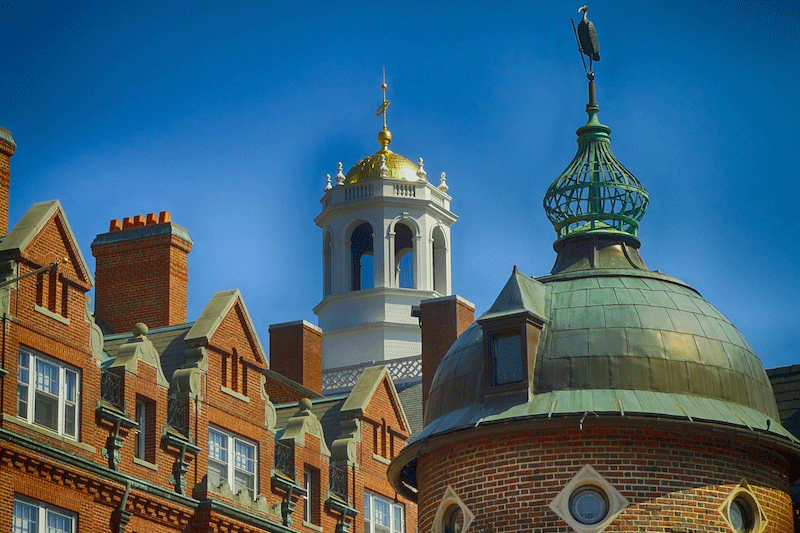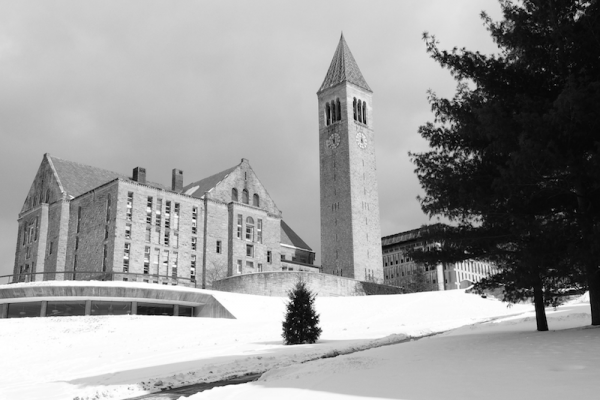I was fortunate enough to conduct a Skype interview with Dana, a graduate of Harvard University, who had lots of insightful advice on applying to the Ivy League. Dana majored in the humanities and graduated with her Bachelor’s within the past five years.
Q: How is Harvard different from other Ivies? What made Harvard stand out to you when you were deciding which school to attend?
“Harvard is a school that people often choose for its name, and that says something about the people who go there.
If you’re going to compare it to Yale, Harvard is a little less focused on the arts. If you want to compare it to Princeton, it lacks the latter’s eating club culture. Obviously, Brown is really laid back and filled with awesome hippies. Cornell has many more undergraduates and more professional specializations. I think UPenn has a similar feel to Harvard. Columbia students are a bit more cosmopolitan and steeped in New York culture. Dartmouth is the kind of place where you have crazy frat bros side-by-side with really artistic people, and any given crazy frat bro could also be a really artistic person. That’s the essence of Dartmouth; each person encompasses polar opposite sides.
I love Brown graduates and Dartmouth graduates. Harvard graduates run the gamut, but they tend to be a little too introverted for me.”
Q: How hard is it to get a leadership role at Harvard?
“As for leadership at Harvard, it really depends on what you’re looking for. A lot of people start their own clubs. I was co-President of a club. It was a really small club, which I tried to revive.
Harvard students spend a lot of time on their extra-curriculars. With some of the more entrenched clubs, like the Crimson, the Phillips Brooks House Association, or the IOP, it can be discouraging if you try hard and don’t get a leadership role. Another thing that could be discouraging is that some people have amazing resources; for instance, their parents will help them to start a new club.
Everyone is trying hard to build leadership experience pretty much all the time, which is exhausting to watch but also really cool.”
Q: What other schools did you apply to/get into/not get into?
“I don’t want to disclose which ones. However, I did get into every school that I applied to.”
Q: What was your Harvard admission essay about?
“Honestly, my essay was a good example of what not to do. It was really diffuse and mentioned a bunch of different things I had done in high school. I wasn’t telling a story and didn’t have much of a hook. I think other applicants can learn from my mistakes.”
Q: What kind of extra-curriculars did you do during high school?
“I had a number of leadership roles, as well as some (rather limited) volunteer experience.
I never did anything with my summers, because my parents couldn’t afford summer camp. In fact, I never left the country until I won stipends for travel at Harvard.”
Q: Did your application have a hook?
“I don’t think I had a hook, but if anything was my hook, I think it was that my academics were very strong. I certainly think that this is one way to get into Harvard, but this is also probably the hardest road, because there will be so many applicants with near-perfect academics. I was also a finalist in a national competition; I am sure that helped.”
Q: Do you have any recommendations for future Harvard applicants and students who see Harvard as their dream school?
“I would say, first of all, that I commend you for dreaming really big. With determination anything is possible. And if you are willing to work as hard as you humanly can, not only to get in but while you are at school, honestly, you’re going to be successful no matter what school you get into. I actually think that most top schools’ admissions processes have become more difficult since I went to college. Just try to remember that failure is a step on the way to success. A lot of Harvard students are afraid of failure because they have never experienced it, which makes them less willing to take meaningful risks.
Take the time to get to know yourself, especially if you’re an overachiever. I think that it’s worth it to take the time to figure out who you are and what you really want. This will not only help with your application, but also make you a stronger person. Take a pause once in a while, and reflect on what you are doing and why.”
Q: What things did you learn at university that you didn’t expect to learn?
“First, going to college really cemented my view that meeting the right people is the best thing you can do for yourself. I’m not just talking about people who can help you to get ahead, but also people who inspire you, encourage you, and who you can trust. This doesn’t have anything to do with the school that you go to, but I am incredibly thankful for the people I befriended, the people with whom I see eye to eye.
Another thing I learned is that no one is going to hold your hand. You have to help yourself. This is a good lesson for life in general.
And a final word of advice: work out! Just do something active! You’ll be glad you did.”
Q: What surprised you about the campus/the students/the location/academics etc.?
“I was really naïve when I went to college because I had a very sheltered childhood. Everything surprised me. I was surprised at how much people drank at parties. Why would people flip themselves upside down and drink out of a keg?”
Q: Anything else you would like to add?
“It’s great to be really driven and have huge goals. Just remember, if you really want something, you will find a way. I really believe in the power of desire and the power of will. If you really want something you will find a way to make it happen.”





